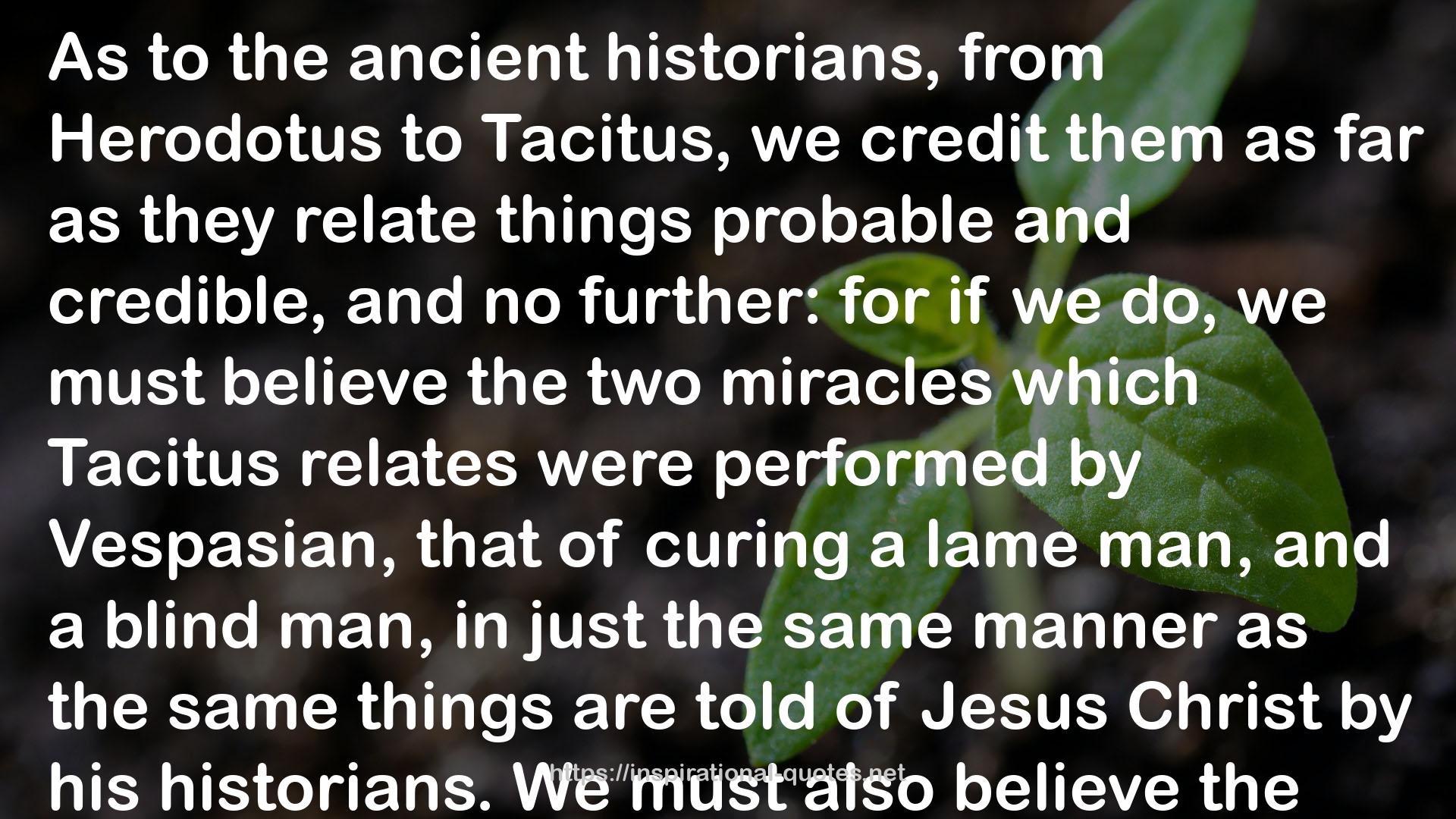The Age of Reason QUOTES
41 " As to the ancient historians, from Herodotus to Tacitus, we credit them as far as they relate things probable and credible, and no further: for if we do, we must believe the two miracles which Tacitus relates were performed by Vespasian, that of curing a lame man, and a blind man, in just the same manner as the same things are told of Jesus Christ by his historians. We must also believe the miracles cited by Josephus, that of the sea of Pamphilia opening to let Alexander and his army pass, as is related of the Red Sea in Exodus. These miracles are quite as well authenticated as the Bible miracles, and yet we do not believe them; consequently the degree of evidence necessary to establish our belief of things naturally incredible, whether in the Bible or elsewhere, is far greater than that which obtains our belief to natural and probable things. "
- The Accidental Genie (Accidentals, #7)
- Accidentally Dead (Accidentals, #2)
- The Accidental Human (Accidentals, #3)
- Voodoo Kiss (Ancient Legends, #3)
- Peyton Place
- The Road To Business Success
- Whisper to the Blood (Kate Shugak, #16)
- Play With Fire (Kate Shugak, #5)
- A Cold Day for Murder (Kate Shugak, #1)
- A Deeper Sleep (Kate Shugak, #15)

